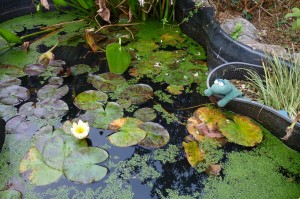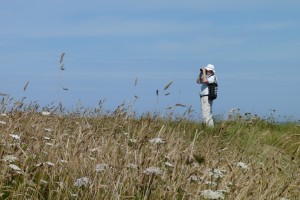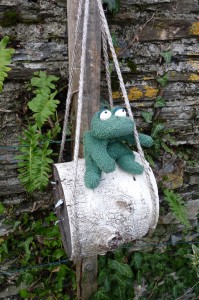…….. just do it!
I have to admit something. I find it very difficult to get back into the swing of writing after the merry-go-round of Christmas. Here we are on the first day of 2015. I’ve been for a bracing walk along the sea front in Looe, Cornwall. The wind was inciting the waves into disobedience, and the colour of the water was a deep January green. We pulled our hoods over our heads, and zipped our anoraks up past our chins.
We paused on the path above the rocky beach. An older man was battling a huge kite into position, trousers flapping viciously at his legs, his jacket ballooning as he bent to his task. A young man in a wetsuit was holding onto the control bar, shouting instructions, and preparing for take-off. A third man watched.
The older man lifted the kite, the younger one gripped the control bar and soared into the air, only to be dashed into the sea about twenty metres from land. The kite floated on the water as the young man came ashore, held out his hand and took the board which the third man had ready for him. With twists of the handle, the young man managed to manoeuvre the kite out of the bouncing waves into the sky.  He mounted the board and off he went, sometimes riding on the water, sometimes flying above it, sometimes plunging into the January sea. His two companions watched from the sand, their eyes unwavering.
He mounted the board and off he went, sometimes riding on the water, sometimes flying above it, sometimes plunging into the January sea. His two companions watched from the sand, their eyes unwavering.
We kept stopping and looking at this plucky young man as we walked. He offered me a silent lesson in perseverance, and in getting on with what we really want to do. Even, I have to add, if the outcome isn’t quite what we bargain for.
When he was at least a mile out, the young man’s kite took a swift dive, and try as he might he couldn’t relaunch it. He must have been cold, and very tired. All he could do was let the current take him further and further away from his companions, into the bay, towards the far coast. It took a long time. Eventually we saw a bright orange dinghy making its way towards him. The lifeboat.
Brave or foolhardy? Perhaps as writers we have to be both. Which is where advice to self comes in.
Just do it!
I know I’m not a tree frog, but I heard you. Just do it, you said, just do it…… So I did!

























